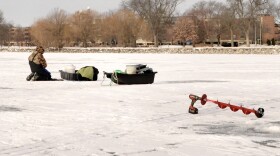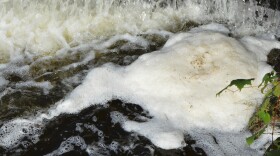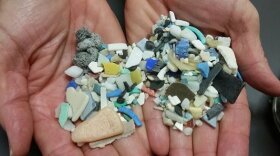-
Researchers want help from ice fishers and others who go onto frozen lakes to collect crucial data, which could improve ice forecasting on the Great Lakes.
-
The goal of a proposed seasonal sea lamprey barrier is to restrict the invasive species' spread up the Sucker River in Alger County. Officials are taking public feedback until February 22.
-
A study in the Journal of Great Lakes Research used preserved whole lake trout and walleye samples to measure the accumulation of so-called "forever chemicals" in fish from 1975 to 2020.
-
This year’s harmful algal bloom in western Lake Erie was among the mildest this century.
-
During the COVID-19 pandemic, the amount of sea lamprey in the Great Lakes surged because treatments were limited.
-
The U.S. would need to invest nearly $3.4 trillion over the next 20 years to fix and update drinking water, wastewater and stormwater infrastructure, say researchers from The Value of Water Campaign.
-
The freighter sank in Lake Michigan on Nov. 18, 1958, during a treacherous storm that produced 65 mph winds and 25-foot waves.
-
The University of Toronto researcher, Chelsea Rochman, says the team is working to understand how microplastics change over time in the Great Lakes.
-
Monday marks 50 years since the tragedy, which saw the Fitzgerald sink to the bottom of Lake Superior with its 29 crew members.
-
Twenty-nine sailors drowned when the Edmund Fitzgerald went down in the Great Lakes' icy waters on Nov. 10, 1975. The ship was immortalized in a surprise hit 1976 folk ballad by Gordon Lightfoot.
Play Live Radio
Next Up:
0:00
0:00
Available On Air Stations










